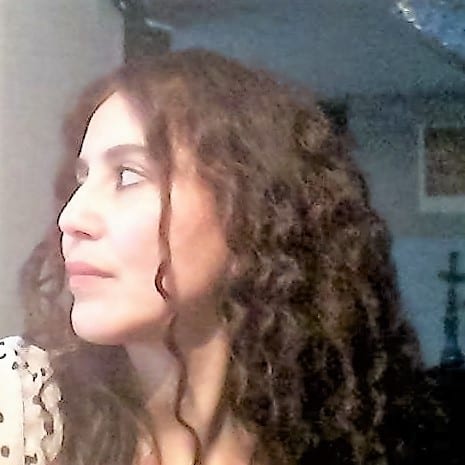What strikes us with Hiam Abbass is her demeanour, subtle and sharp at the same time, her voice is calm but clear, her gaze is straight, her eyes do not flicker. It is obvious that this Israeli-Palestinian actress has serene strength. She plays the lead role in Algerian actress Rayhana’s first film “A mon âge, je me cache encore pour fumer” (French for “At my age, I still hide to smoke”).
Set in a hammam in Algiers during the country’s Black Decade in the 1990s, the film looks at the relationship between men and women at a time when Algeria was experiencing the threat of terrorism. This universal theme resonates even more in the Arab world. Abbass plays Fatima, a masseuse and owner of a hammam; a rough character who does not hesitate to rescue a young pregnant girl who is trying to escape her brother’s wrath.
This is the type of role that has become synonymous with the actress, one which sees her marginalised.
I met Abbass in Paris during the 12th Annual Festival of North-African and Middle East Cinema where she tells me that “At my age, I still hide to smoke” gripped her from the start.
“Everything about that movie got me interested. Not just playing Fatima. The story itself was interesting. The way Rayhana depicted these women who lived during this dark decade in Algeria. The whole project made me say yes.”
Abbass says she had to work hard to play the lead role. “Fatima’s character was so well-written. Still I had a million questions to be able to properly understand who Fatima was. I didn’t know any Algerian woman to begin with. I didn’t know any woman who owned a hammam either.”
“Her roughness but also her softness are part of her character. I did not make up anything about Fatima. When I work on a character I rely on the script, on what has been written about them. I always try to be honest and sincere.”
However there was more to the character than just what the script said, Abbass explains. “I believe, since she [Rayhana] wanted to work with me, she must have seen something about Fatima in me”.
Life is not all black or white, it would not be interesting if it was. I want to play complex roles, as complex as real human beings in the real life. Why would you confine a human being to one single aspect?
“I worked hard,” she says. This is evident in the fact that the film plays out entirely in Algerian dialect something Abbass says she couldn’t speak before. “I had to learn it.” So she immersed herself in the dialogue. “I would listen to recorded dialogues and repeat them, not for just one or two days. Every night before going to bed I would listen to the dialogues.”
The film was also a cultural change for Abbass in many ways. “There’s no such thing as a typical Arabic woman,” she says. “It is time to understand that each Arab country has its own tradition and that women’s fights are not the same… Even when it comes to the language, we all speak Arabic but we also all speak an Arabic dialect.”
While the film speaks of women smoking behind closed doors in Algeria, Abbass says this was never a consideration in Palestine where she was brought up. “I saw my grandma smoking all the time in Palestine without it being an issue. There’s a difference.”
Highlighting such differences makes films excellent tools which transcend barriers and borders. “Movies are images and people are obsessed with images. People can identify themselves in an Arabic movie, they can identify to the characters.”


![Image of Hiam Abbass [28 minutes/Twitter]](https://i0.wp.com/www.middleeastmonitor.com/wp-content/uploads/2017/05/2017_5_5-Hiam-Abbass.jpg?fit=1200%2C800&ssl=1)









